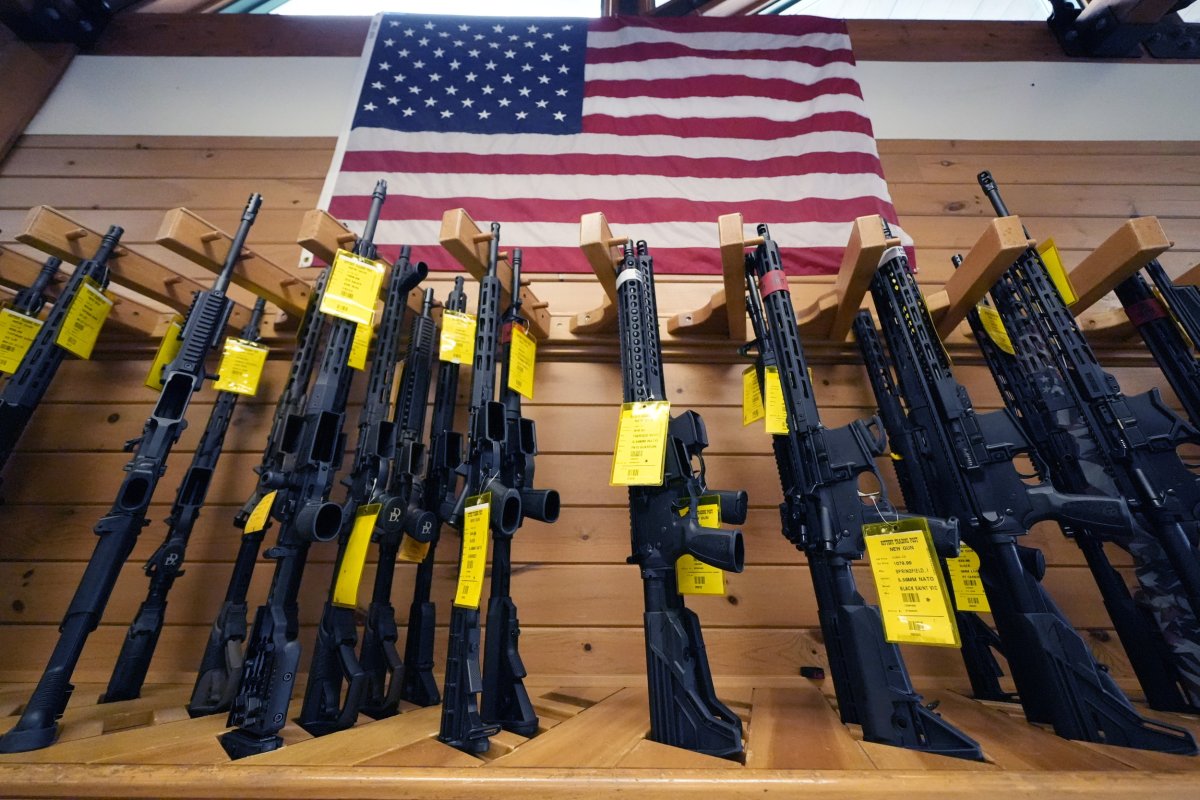The devastating shooting which left four people dead at a school in Winder, Georgia, is prompting a look at the state’s gun laws and how they compare to other parts of the country.
Two 14-year-old students, Mason Schermerhorn and Christian Angulo, and two teachers, Richard Aspinwall and Christina Irimie, were killed when Colt Gray, also 14, opened fire at Apalachee High School, in Barrow County, on Wednesday.
At least nine other people, including eight students and one teacher, were injured.
Gray was taken into custody and is expected to be charged with murder and tried as an adult. Chris Hosey, director of the Georgia Bureau of Investigation, said at a news conference that the gun used at the school was an “AR-platform-style weapon.”
Georgia has often backed gun rights, and firearms magazine Guns & Ammo ranked it 13th in a list of the best states for gun owners, looking at “how well each state upheld the Second Amendment in 2023.”
Gun control advocacy organization Everytown frames this differently, ranking Georgia 46th for gun law strength and calling its gun laws “some of the weakest in the country.”
Both sides referenced Georgia’s decision to implement permitless carry in 2022, revoking the requirement for gun owners to get permission to carry their firearms in public.
Folks in Georgia do not need to undergo a background check, they do not need a permit to purchase rifles, shotguns or handguns, they do not need to register these firearms with the government and they do not need a permit to carry them, according to Everytown.
Georgia also does not have any extreme risk/red flag law, which allows law enforcement, and sometimes family members, to petition for a court order to remove someone’s access to guns – often by taking them away.
The Constitutional Carry bill, which received the backing of Georgia Governor Brian Kemp, allows any adult who can legally own a firearm to bypass any additional paperwork in order to carry it in public. However, those who do want to obtain a permit can still do so, and the bill still means it is illegal to carry a firearm in institutions such as schools and government buildings.
The law does excludes those banned from owning a handgun under criteria including being a minor and convicted felons whose civil rights have not been restored.
For comparison, Wyoming, the state listed as number one on the Guns & Ammo list, is ranked 44th by Everytown, “with some of the weakest gun laws and high household firearm ownership,” the site says.
It has several identical “foundational laws” to Georgia, in the sense that it does not require background checks, a permit to purchase, firearms to be registered or a permit to carry. It also has no extreme risk/red flag law.
After Wyoming, Idaho, Montana, Utah and North Dakota make up the top five on Guns and Ammo’s list, and at the bottom of Everytown’s list, which classes Wyoming, Idaho and Montana as “national failures” and Utah and North Dakota as “weak systems.”

AP
Like Georgia and Wyoming, none of these states require permits or background checks and none of them have extreme risk/red flag laws.
Conversely, Guns & Ammo lists New York as the worst state for gun rights, while Everytown ranks it as second in its list of “national leaders” in gun safety laws.
Unlike Georgia, New York requires a background check, a purchase permit and a concealed carry permit. This is the same in California, which tops Everytown’s list and comes in at 48 on the Guns & Ammo list.
New York and California are two of several states which allow law enforcement, immediate family members, employers, coworkers, teachers, roommates, people with a child in common or who have a dating relationship to apply for an order to remove someone’s access from guns.
Debates on gun laws constantly focus on whether more permissive access to weapons can be linked to mass killings.
A study published in the British Medical in 2019 found that “states with more permissive gun laws and greater gun ownership had higher rates of mass shootings.”
But, as senior behavioral scientist Terry Schell told KRCC at the time, this could be a chicken-and-egg situation.
He said: “It could be that the rate of gun ownership in a state determines the number of gun restrictions that will be passed into law, but those gun laws have no effect on either firearms suicides or mass shootings.”
👇Follow more 👇
👉 bdphone.com
👉 ultraactivation.com
👉 trainingreferral.com
👉 shaplafood.com
👉 bangladeshi.help
👉 www.forexdhaka.com
👉 uncommunication.com
👉 ultra-sim.com
👉 forexdhaka.com
👉 ultrafxfund.com
👉 ultractivation.com
👉 bdphoneonline.com




